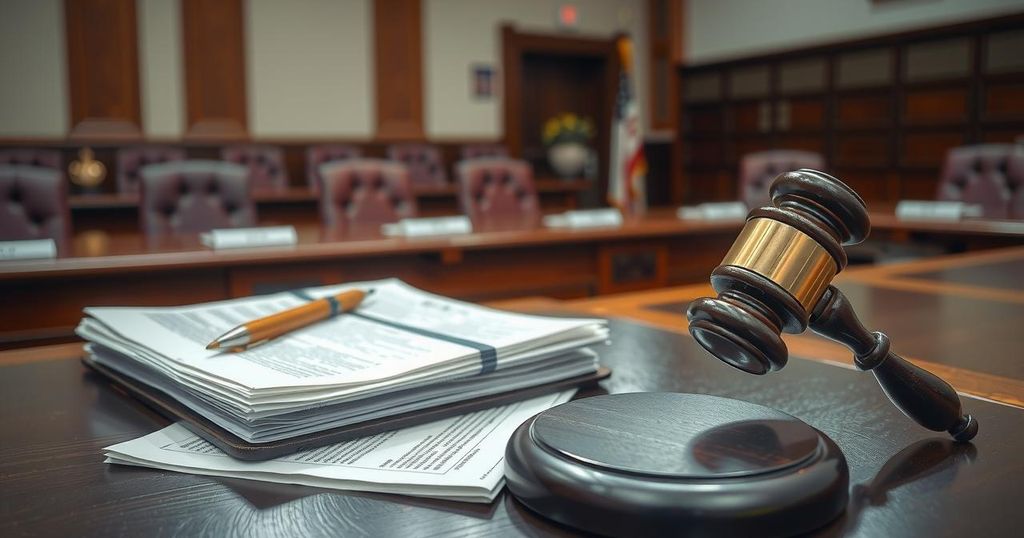Nicolas Sarkozy’s Trial Begins Over Allegations of Illegal Campaign Funds from Libya

Former French President Nicolas Sarkozy is on trial in Paris for allegedly receiving illegal campaign funds from the Libyan government in 2007. This trial is one of the most serious legal challenges since he left office, following his recent sentencing in a corruption case to house arrest with electronic monitoring.
On Monday, former French President Nicolas Sarkozy commenced a trial in Paris regarding allegations that his 2007 election campaign received unlawful financial support from Libya under the regime of Col. Muammar el-Qaddafi. This trial, anticipated to span three months, poses significant legal ramifications for Mr. Sarkozy, who served as France’s leader from 2007 to 2012. Compounding this matter, Mr. Sarkozy recently faced and exhausted his appeals in an unrelated corruption case, resulting in him being the first ex-president in France sentenced to actual imprisonment, albeit under house arrest with electronic monitoring.
Nicolas Sarkozy, a prominent political figure in France, has grappled with numerous legal challenges since his presidency, which concluded in 2012. The current allegations surrounding his campaign financing from Libyan authorities are among the most severe he has encountered. These legal issues reflect broader concerns regarding political integrity and the influence of foreign governments in domestic elections, thereby drawing substantial scrutiny and public attention.
In conclusion, the trial of Nicolas Sarkozy for alleged illegal campaign financing marks a critical juncture in his post-presidential career. With previous convictions for corruption and abuse of power, this latest legal battle underscores the lasting impact of financial improprieties in political spheres. As the trial unfolds over the next three months, it will undoubtedly keep the French public and international observers engaged with significant implications for Sarkozy’s legacy and France’s political landscape.
Original Source: www.nytimes.com








